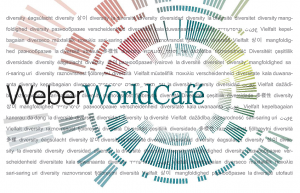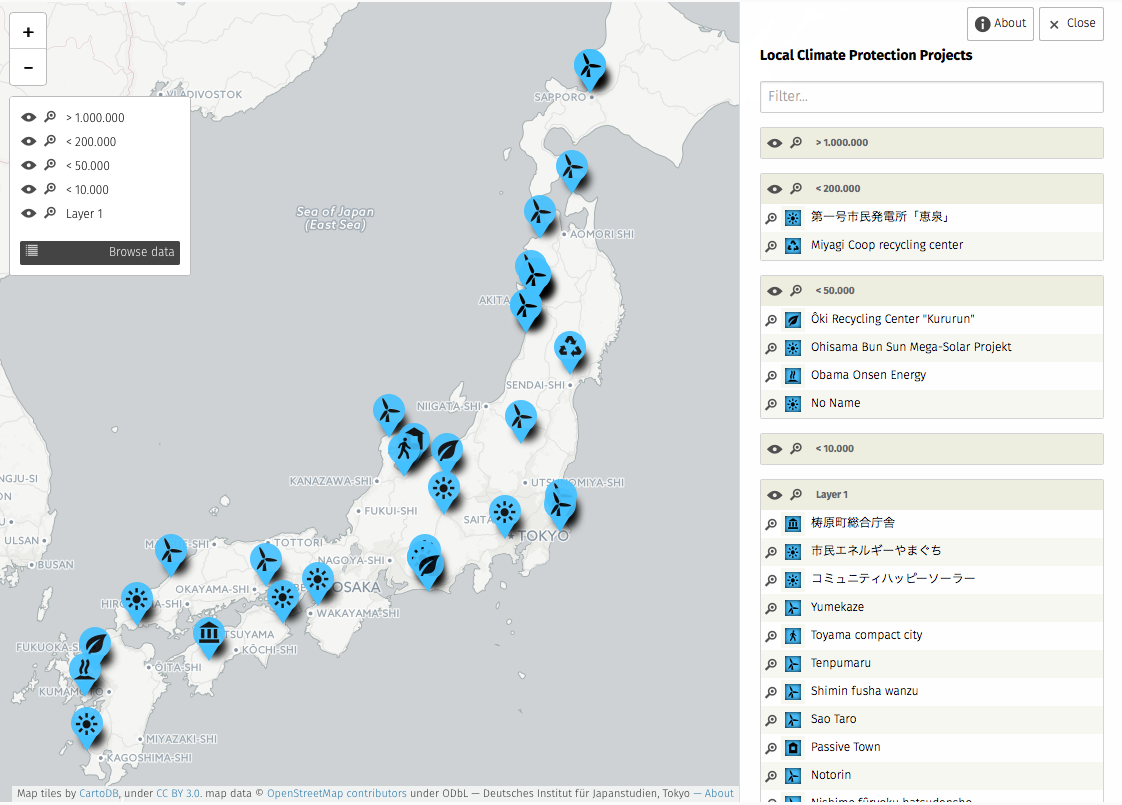イベント&アクティビティ
WeberWorldCafé: Diversity – Limits and Opportunities

The WeberWorldCafé is an interactive, biannual event format that brings together researchers and practitioners from various disciplines and regions who meet and exchange their thoughts in a relaxed, coffeehouse-like atmosphere.
To enrich the discussions we particularly invite students, young scholars and the interested public to participate in the talks.
Scheduled:
November 24, 2016 | 3:00 P.M. – 6:00 P.M.
Registration deadline:
November 22, 2016
The Relevance of Area Studies for the Sciences and Public Policy: Examples from Europe & Asia
 Social sciences, and even more so natural sciences and engineering, tend to neglect local conditions, i.e. how ecological, social, political or economic issues are perceived and addressed in the specific context of a country or region and how solutions are sought for and implemented.
Social sciences, and even more so natural sciences and engineering, tend to neglect local conditions, i.e. how ecological, social, political or economic issues are perceived and addressed in the specific context of a country or region and how solutions are sought for and implemented.
Our conference aims at highlighting possible contributions of area studies to the sciences, innovation and public policy by discussing concrete examples in highly relevant thematic fields. We would like to invite you to the public part of our conference which will refer to the outcomes of our preceding “closed” sessions.
Scheduled:
November 15, 2016 | 1:30 P.M. – 5:00 P.M.
Registration deadline:
November 11, 2016
Victimhood Nationalism in the Transnational Memory Space
‘Victimhood nationalism’ is a working hypothesis to explicate competing national memories over the historical position of victims in coming to terms with the past. The hereditary memory of victimhood consolidates the national solidarity beyond generations and justifies nationalism by endowing the victimized nation with the moral sympathy and historical authenticity. Without a reflection on victimhood nationalism, the postwar Vergangenheitsbewaeltigung (‘coming to terms with the past’) cannot be properly grasped.
The talk by Professor Lim will be followed by comments by Professor Horvat before the floor will be opened to the audience for a Q&A session.
Scheduled:
November 10, 2016 | 6:30 P.M. – 8:00 P.M.
Speakers:
Jie-Hyun Lim, Sogang University Seoul
Andrew Horvat, Josai International University
日独シンポジウム 温暖化対策と地方創生
 日本とドイツは、温暖化対策において緊密な協力関係にあります。この関係の強化に向けた両国の決意は、G7富山環境大臣会合や、本年5月に日本環境省とドイツ連邦環境・自然保護・建設・原子炉安全省の間で署名された「脱炭素社会に向けた低炭素技術普及を推進するための二国間協力に関する共同声明」において、明確に示されました。
日本とドイツは、温暖化対策において緊密な協力関係にあります。この関係の強化に向けた両国の決意は、G7富山環境大臣会合や、本年5月に日本環境省とドイツ連邦環境・自然保護・建設・原子炉安全省の間で署名された「脱炭素社会に向けた低炭素技術普及を推進するための二国間協力に関する共同声明」において、明確に示されました。
気候保護政策には、国際的な調整が欠かせない一方で、具体的な対策の実現には、多くの場合自治体と市民の積極的な活動が鍵となります。
Changing Gender Orders and Diversity in Comparative Perspective: Growing Flexibility of Work and Life Strategies
Our speaker, Ilse Lenz, will compare the two conservative gender welfare regimes of Germany and Japan by examining convergences and differences and discuss the main characteristics and the scale of these transformations.
“In most postindustrial societies, we presently experience a transformation from a gender order based on difference to a more flexible one. In the sphere of production, we witness a highly increased women’s labor market participation, based on the support of equal opportunity and diversity schemes. However, a large part of female employees are working in irregular or precarious jobs, and this trend is extending to male wage earners.”
The presentation will be followed by a comment from Glenda S. Roberts, Professor at the Graduate School of Asia-Pacific Studies of Waseda University.
Scheduled:
October 13, 2016 | 6:30 P.M. – 8:00 P.M.Speakers:
Ilse Lenz, Professor emeritus at Ruhr-Universität Bochum (RUB)
Glenda Roberts, Professor at Waseda University
Going Global, but How? Diversity in Transnationalisation Processes of Japanese Labour Activism
Social activism is not a nation state-bound phenomenon, but globally embedded. The Japanese labour movement represents a particularly interesting case to study the relationship between global frameworks of activism and their transformative impact on domestic activism, as it displays a much broader diversity than institutionalist approaches can explain. While parts of the Japanese labour movement strongly resemble their international counterparts, others remain remarkably distinct.
To explain this diversity, I elucidate the interaction between isomorphic influences of global frameworks of labour activism and the strategic selection and adoption by different actors in the Japanese labour movement.
Disaster, Law and Justice in Japan: In the Tsunami of Debt and Lost Homes
The Great East Japan Earthquake of 2011 unleashed unprecedented tremors and a devastating tsunami, damaging one million buildings and rendering 300,000 victims displaced and dispossessed. Former home-owners and businesspeople found themselves in the position of seeking loans to rebuild and invest, while being unable to pay off pre-disaster mortgages and debts.
Largely unnoticed outside of Japan, this so-called “double-loan crisis” promoted private and corporate insolvency, threatening financial institutions, jeopardising disaster recovery and entrenching social inequality. Treating issues of property insurance, debtor-creditor, social welfare, charity, financial and insolvency law, this paper examines the situation of the tsunami victims from a legal perspective.
Managing One’s Own Death: The Shūkatsu Industry and the Enterprising Self in an Ageing Society
Japan ranks among the first in the world in terms of average life-expectancy, but its combination of high-age with a low birthrate is gradually turning it into a “society of many deaths” (tashi shakai). With the current change in family structures, the need to make arrangements for one’s own passing is felt by an ever growing number of people. Trying to cash in on this demand, the ailing funeral industry has started to urge individuals to take care of their own future grave, funeral, inheritance, elderly care and property clean-up, promoting these activities under the label “shūkatsu” (end of life activity).








 Open Access
Open Access
